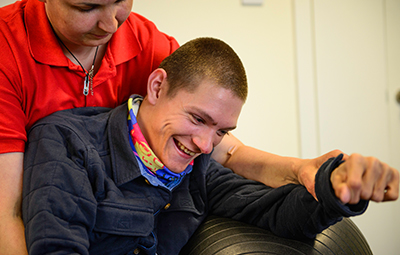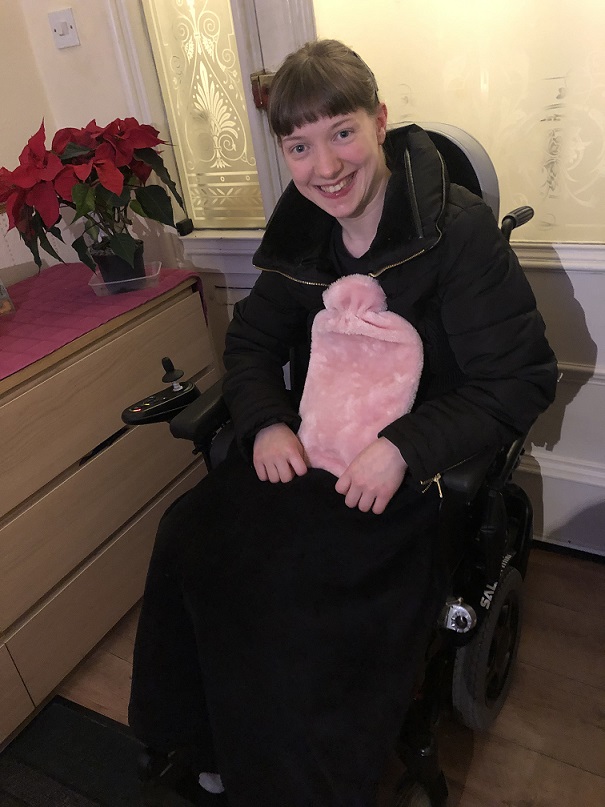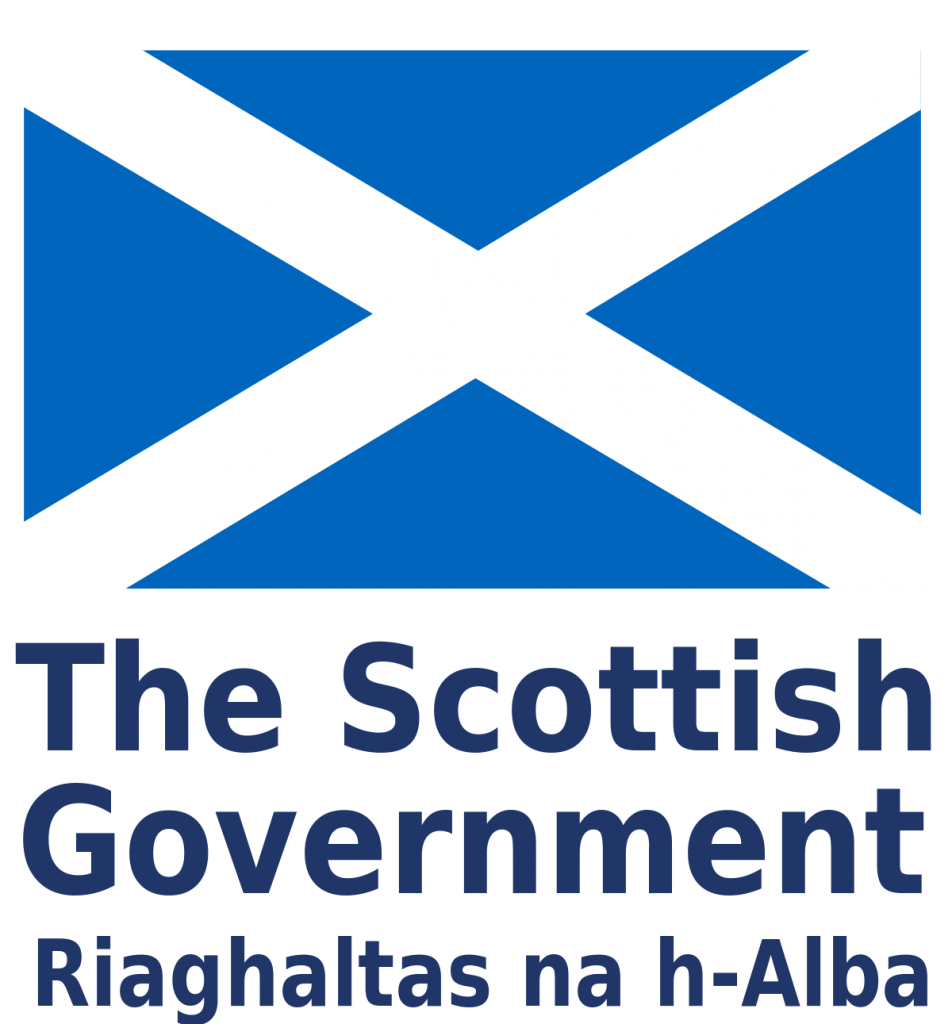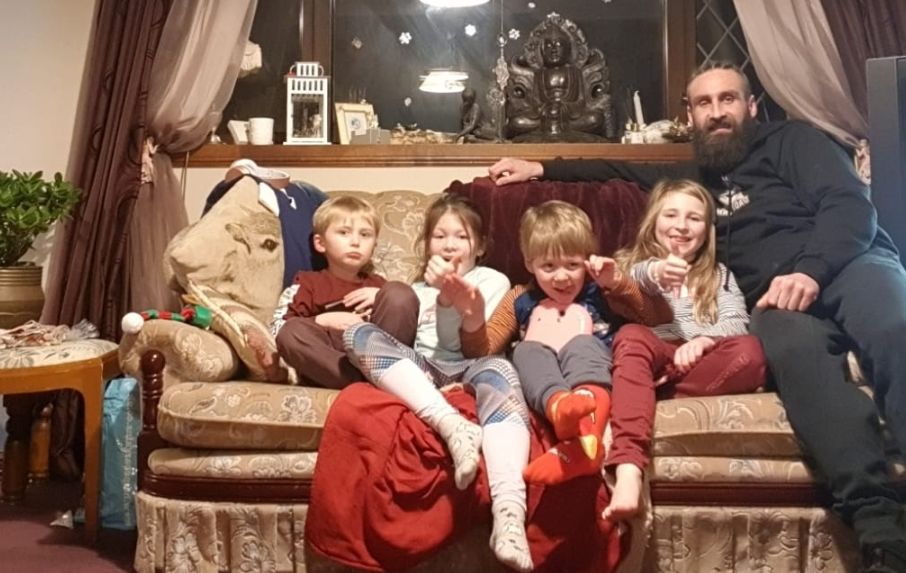by Jill Clark
In this blog I am going to talk about how Cerebral Palsy Scotland can provide therapy for adults who are living with cerebral palsy (CP).
I am also going to share my experiences of getting therapy as an adult and other adults’ experiences of therapy as well.
How does Cerebral Palsy Scotland support adults?
Cerebral Palsy Scotland provides specialist therapy using the Bobath concept to those living with cerebral palsy in Scotland. Founded in 1995, the charity has grown and developed, both in the services that are provided and the number of people the centre sees. Cerebral Palsy Scotland offers support to anyone with a diagnosis of CP, regardless of their age or location, and try to reach as many people as possible at the centre, online, and in their own communities.
There are three different types of therapy offered at the centre: physiotherapy, occupational therapy and speech therapy.
Physiotherapy is when you work on your body and muscles to make them better. Occupational therapy is when you work on skills like washing, dressing or cooking. Speech therapy is when you look at your ways of communication and eating/drinking.
When Cerebral Palsy Scotland started it was just for children, but in April 2012 the charity started to provide therapy for adults with cerebral palsy too and it has been a great success ever since.
If you want to start to come for therapy sessions, you will get a free first assessment where you meet two therapists to talk about you and look at what you can work on or towards. Some people come for just physiotherapy because they are having pain and some people come to work towards their goals like cooking or getting dressed.
Jill
Now I am going to talk about my own experience of Bobath therapy as an adult and share other people’s experiences too.
I am 27 and have cerebral palsy. I am in a wheelchair and use a communication device. Due to my cerebral palsy my muscles get tight, especially my legs and hips. I go horse riding and that helps but last year I started to feel more pain.
So I asked to come to Cerebral Palsy Scotland for physiotherapy to help my body to get looser. I had a few sessions with two physiotherapists and we looked at how I sit in my wheelchair because that can be a help with my muscles. The physiotherapists changed my wheelchair a bit to help me to sit me better and that has helped my muscles a bit. And over the past few months the physiotherapists at have been helping myself to get a new wheelchair. So being an adult with cerebral palsy I think I will need input from physiotherapists at Cerebral Palsy Scotland as I get older to keep me comfortable in terms of my sitting and also my muscle pain.
Now I am going to share other adults’ experiences of therapy at Cerebral Palsy Scotland as an adult.
Kirsty
Kirsty is 24 and has quadraplegic cerebral palsy which means that she has spasticity in all four limbs so she finds fine and gross motor movement difficult.
Kirsty started to come to Cerebral Palsy Scotland as an adult when she was 22 and she tries to come to the centre every 3-4 weeks for therapy. Kirsty comes to work on a lot of things. She explains:
“Trying to walk, I spend a lot time trying to weight shift and trying not to move all my body as one. Trying to not arch my back. Trying to sit on one side then the other.
“I learnt how to deal with change and count money and fold up clothes. We work with my hands because they would not rotate so I found it very hard to get anything onto the palm of my hands. So we did a lot of games with my hands and used toys to help me to achieve this experience. I was very happy. I couldn’t fold up my clothes neatly so now I can do that. I went to the kitchen to make some food to work on my fine motor skills.”
Kirsty and her family has built up a friendship with the therapists here, especially Leen and Petra. Kirsty likes that that the therapists are very understanding of her CP and she likes that the therapists talk to her and not just to her mum or PA. Kirsty thinks they just are fantastic.
Kirsty has got a lot out from coming to the centre and she would recommend Cerebral Palsy Scotland and she explains why,
“I think it’s a really fantastic place to be part of even though I have cerebral palsy that I don’t really like having, a good thing about having CP is that I have Cerebral Palsy Scotland. It’s like a second home for me.”
Marion
Marion is 35 and has dyskinesia cerebral palsy which affects all her movements, limbs, muscles and speech. Marion comes for ten sessions a year at Cerebral Palsy Scotland to work on a lot of things. She explains:
“My goals are trying to open my chest more, minimising back pain and just keeping my ability to weight bear. I work on my sitting on the bench and over blocks on the bench to help to open my chest and I practise standing. I also work on my legs and hips.”
Marion thinks very highly of the therapists at Cerebral Palsy Scotland and she explains,
“The therapists have always been very understanding with everything in my life. The therapists have done great supportive letters for trusts or other professional people for me and they are easy to get in touch with. Also they are really friendly and helpful.”
As Marion has been coming to Cerebral Palsy Scotland for many years it has been a big input in her life, she explains “Without this input over the years I don’t believe I could be active and flexible in my body which means I can do all the activities that I do. For example, wheelchair dancing or working on my computer, and using my talker.”
Marion would definitely recommend Bobath therapy to any adult with cerebral palsy and she explains why,
“The therapy might help them do their activities easier or help with any pain in their bodies. Also they might get help on other issues too.”
Enquiries and funding
As you have just read about, Cerebral Palsy Scotland does make life better for adults with cerebral palsy. So if you are an adult with cerebral palsy why don’t you come and see us to find out if we can help you in any way.
And, if you are aged 18 or over, you may be able to apply for subsidised therapy sessions at our Glasgow centre, via our Helping Hands scheme.
You can also call the centre on 0141 352 5000 or email: info@cpscot.org.uk


 ‘I’m going to be warm this winter’…Bernie shares some tips on how to help keep yourself cosy for winter 2020.
‘I’m going to be warm this winter’…Bernie shares some tips on how to help keep yourself cosy for winter 2020.


